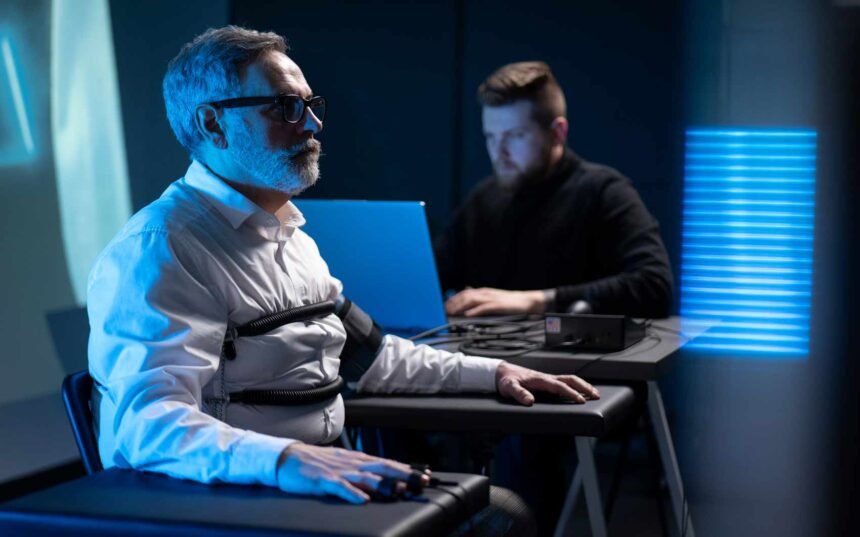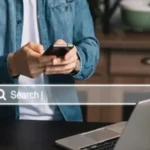In today’s world, truth and transparency are essential for resolving conflicts, uncovering hidden truths, or confirming facts. Whether for personal, professional, or legal reasons, many individuals seek a reliable and accurate method to determine honesty. A lie detector test near me can offer an efficient and credible solution. This article dives deep into what lie detector tests are, how they work, and where you can find the best services nearby.
What Is a Lie Detector Test?
A lie detector test, also known as a polygraph test, is a process that measures physiological responses to determine whether a person is truthful when answering specific questions. The test relies on the principle that deceptive answers cause physiological changes such as increased heart rate, blood pressure, respiratory rate, and skin conductivity. These changes are recorded and analyzed by the polygraph machine to identify discrepancies in the subject’s responses.
While not infallible, lie detector tests have proven to be highly effective in various settings, including criminal investigations, workplace disputes, and relationship issues. By finding a “lie detector test near me,” individuals can address concerns promptly and with professional assistance.
Why You Might Need a Lie Detector Test
Lie detector tests are versatile and can be used in multiple scenarios. Below are some common reasons why someone might search for a “lie detector test near me”:
Personal Relationships
Trust issues in relationships can be emotionally draining. Whether it’s suspicion of infidelity, dishonesty, or concealed information, a polygraph test can help clear doubts and foster transparency. Many couples turn to lie detector tests to resolve conflicts and rebuild trust.
Workplace Disputes
In professional environments, issues such as theft, fraud, or misconduct can significantly impact team dynamics and organizational success. A lie detector test can provide clarity in such situations, helping employers make informed decisions without prolonged investigations.
Legal Matters
Lie detector tests are often used in criminal investigations or civil disputes to corroborate or refute evidence. Though not always admissible in court, they can be instrumental during investigations or pre-trial preparations.
Pre-Employment Screening
Some employers require lie detector tests as part of the hiring process, especially for roles involving high security or sensitive information. These tests ensure candidates meet the company’s ethical and security standards.
How Does a Lie Detector Test Work?
Understanding the process of a polygraph test can help ease apprehensions and build confidence in its reliability. Here’s a step-by-step breakdown:
Pre-Test Interview
The examiner conducts an initial interview to explain the test’s purpose and process. During this stage, the subject’s medical history and psychological state are also reviewed to ensure they are suitable for testing.
Baseline Questions
The examiner establishes baseline readings by asking neutral questions, such as the subject’s name or age. These responses help set a reference point for physiological reactions.
Relevant Questions
Next, the examiner asks specific questions related to the issue at hand. These questions are carefully designed to elicit truthful or deceptive responses.
Data Analysis
The polygraph machine records physiological responses to each question. After the test, the examiner analyzes the data to identify patterns or anomalies that indicate deception.
Post-Test Review
Finally, the examiner discusses the results with the subject. In many cases, the findings are also provided to the individual or organization that requested the test.
Finding a Lie Detector Test Near Me
Searching for a “lie detector test near me” can yield numerous options, but choosing the right provider is crucial. Here are some factors to consider:
1. Certification and Credentials
Ensure the examiner is certified by a reputable organization, such as the American Polygraph Association (APA). Certification guarantees the examiner has undergone rigorous training and adheres to ethical standards.
2. Experience and Expertise
Look for an examiner with extensive experience in the field. An experienced professional is more likely to conduct accurate and reliable tests while addressing any concerns you may have.
3. Client Reviews
Online reviews and testimonials can provide insight into the quality of services offered by a provider. Positive feedback from previous clients indicates trustworthiness and professionalism.
4. Technology and Equipment
Modern polygraph machines use advanced technology to enhance accuracy and reliability. Ensure the provider uses up-to-date equipment for the best results.
5. Privacy and Confidentiality
Lie detector tests often involve sensitive information. Choose a provider that prioritizes privacy and confidentiality to ensure your personal or professional details remain secure.
Benefits of Choosing a Lie Detector Test Near Me
Opting for a local polygraph service offers several advantages, including:
1. Convenience
A nearby location reduces travel time and ensures quick access to services. This is especially beneficial in urgent situations where time is critical.
2. Faster Results
Local providers often offer prompt scheduling and expedited results, helping you address concerns without unnecessary delays.
3. Personalized Service
Local examiners are more likely to understand your specific needs and provide tailored solutions. This personal touch can enhance the overall experience.
4. Cost-Effectiveness
Choosing a nearby provider eliminates additional expenses such as long-distance travel or accommodation, making the service more affordable.
Limitations of Lie Detector Tests
While lie detector tests are highly effective, they are not without limitations. Understanding these limitations can help you make informed decisions:
- Accuracy Variability: Although polygraph tests boast an accuracy rate of 85-95%, factors such as nervousness, medical conditions, or medication can affect results.
- Legal Admissibility: In some jurisdictions, polygraph results are not admissible in court due to concerns about reliability.
- Emotional Impact: The testing process can be stressful, particularly for individuals who are anxious or unfamiliar with the procedure.
How to Prepare for a Lie Detector Test
Preparing for a polygraph test is essential to ensure accurate results. Follow these tips to minimize stress and maximize reliability:
Be Honest
Honesty is key to obtaining accurate results. Attempting to manipulate the test often leads to inconclusive or deceptive findings.
Stay Calm
Practice deep breathing or relaxation techniques to reduce anxiety. A calm state of mind helps minimize physiological fluctuations unrelated to deception.
Follow Instructions
Listen carefully to the examiner’s instructions and ask questions if needed. Adhering to guidelines ensures a smooth and accurate testing process.
Conclusion
A lie detector test near me can provide fast, reliable, and convenient solutions for uncovering the truth. Whether for personal, professional, or legal reasons, polygraph tests offer valuable insights and peace of mind. By choosing a certified and experienced provider, you can trust the results and address your concerns with confidence.
When seeking a lie detector test nearby, prioritize professionalism, confidentiality, and reliability. With the right approach, a polygraph test can serve as an effective tool for resolving disputes, confirming truths, and fostering trust in various aspects of life.
FAQs
What is the purpose of a lie detector test?
A lie detector test helps determine truthfulness by analyzing physiological responses to specific questions.
Are lie detector test results 100% accurate?
While highly effective, polygraph tests are not infallible and generally have an accuracy rate of 85-95%.
Where can I find a certified lie detector test examiner near me?
Look for certified professionals with credentials from organizations like the American Polygraph Association (APA).
Can I prepare for a lie detector test?
Yes, staying calm, being honest, and following the examiner’s instructions are key to ensuring accurate results.
Are lie detector tests admissible in court?
This depends on the jurisdiction, as some courts do not accept polygraph results due to questions about reliability.












